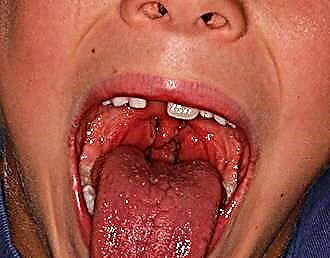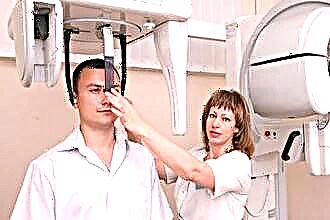 Hoarseness of the voice is the result of inflammation and swelling of the airways in the area of the vocal cords. A common cold cannot cause aphonia, but it provokes the development of acute laryngitis or exacerbation of chronic tracheitis, pharyngitis, etc.
Hoarseness of the voice is the result of inflammation and swelling of the airways in the area of the vocal cords. A common cold cannot cause aphonia, but it provokes the development of acute laryngitis or exacerbation of chronic tracheitis, pharyngitis, etc.
Treatment of ENT diseases includes inhalation, gargling and taking medications of symptomatic and etiotropic action.
And in order to prevent complications, complete vocal rest must be observed during therapy.
General recommendations
How are vocal cords treated? First of all, it is necessary to catch the moment when hoarseness is just beginning to appear in the voice. Some patients try to speak even louder to cut through the voice, but this can damage the vocal cords and the muscles in the larynx. The first manifestations of aphonia occurring against the background of a cold include:
- sore throat;
- dry mouth;
- decrease in the timbre of the voice;
- discomfort in the Adam's apple;
- feeling of overstrain of the vocal cords.
Even before contacting a specialist, you need to adhere to a sparing regime in order to prevent further damage to the vocal cords. If they are inflamed, talking will only aggravate the patient's condition and cause scarring on the ligaments. What to do if you lose your voice?
- try not to talk, in case of urgent need speak only in a whisper;
- drink plenty of fluids to speed up the process of removing toxic substances from the body that cause allergic reactions and laryngeal edema;
- refrain from eating hot, spicy and too salty foods that irritate the throat;
- Use a humidifier to relieve dry cough and sore throat.
- Gargle with an anti-inflammatory chamomile or sage decoction
- during treatment, stop smoking and drinking alcohol.
It should be understood that only a specialist can prescribe competent treatment of the disease. Ignoring the problem in some cases becomes the cause of the development of purulent processes in the larynx, surrounding muscles and vocal cords. Bacterial airway inflammation can lead to paratonsillar abscess or even sepsis. To restore a lost voice, you need to seek help from an ENT doctor or phoniatrist.
Antibiotics
What remedies can be used to treat loss of voice? A common cold leads to a decrease in general immunity, which can lead to an exacerbation of chronic diseases. Bacterial laryngitis and tracheitis are one of the most likely causes of aphonia, which occurs in about 6 out of 10 cases.
As a rule, inflammation of the components of the sound-generating apparatus - the vocal cords, larynx, trachea and nasal cavity - occurs due to damage to soft tissues by staphylococcal or streptococcal infection. To eliminate inflammation and destroy pathogenic bacteria, antibiotics of the penicillin, macrolide or cephalosporin series are used.
Only the attending physician can correctly draw up a therapy regimen after determining the causative agent of the infection and its sensitivity to the components of certain antibiotics. In most cases, the following are used to treat bacterial infections affecting the vocal apparatus:
- "Panklav";
- Erythromycin;
- "Amoxicillin";
- "Pancef";
- Macropen.
The effectiveness of drugs is assessed within 3 days: in the absence of a positive effect, the treatment regimen is adjusted.
On average, antimicrobial treatment for voice loss lasts about 10 days. If the disease is complicated by otitis media, sinusitis and other pathologies, the therapy time can last up to two weeks.
Expectorants
A barking obsessive cough is a classic symptom indicating the development of laryngitis. During the coughing act, the so-called false vocal folds are overstrained, which take part in voice formation. To relieve the patient's condition and stop the cough, it is recommended to use expectorants that thin the mucus in the throat.
 First of all, to reduce the viscosity of sputum, you need to use large quantities of alkaline solutions - warm milk or mineral water without gas. In addition, you can use mucolytic agents, namely:
First of all, to reduce the viscosity of sputum, you need to use large quantities of alkaline solutions - warm milk or mineral water without gas. In addition, you can use mucolytic agents, namely:
- "ACC";
- Bromhexine;
- "Pertussin";
- Solvin;
- "Fluimucil".
The simultaneous use of expectorant and antitussive drugs leads to stagnation of mucus in the lungs and the development of pneumonia.
The lack of voice may be due to severe swelling of the vocal cords.
To act directly on the affected tissue, injections of anti-inflammatory drugs are used directly into the larynx (instillations), which are carried out using a laryngeal syringe. During the procedure, corticosteroids are most often used, which quickly relieve inflammation and restore the laryngeal mucosa.
Inhalation
At home, loss of voice with a cold is successfully treated with inhalation. During therapy, it is recommended to use ultrasonic or compressor inhalers that do not heat medicinal solutions and do not irritate the throat mucosa. How does inhalation work on the respiratory system?
Inhalation procedures have a beneficial effect on the condition of the vocal cords and the ciliated epithelium, which is covered with the inner surface of the trachea. During therapy, the mucous membranes are moistened, and the phlegm is liquefied and easily separated from the walls of the throat. Due to this, cough and pathogens that are contained in mucus are eliminated.
Depending on the drugs used, inhalations can be used to eliminate inflammation in the ENT organs and thereby restore the working capacity of the voice-forming apparatus. How to treat hoarseness and aphonia?
- "Bioparox";
- Interferon;
- Rotokan;
- "Dioxidin";
- Essentuki 17;
- Chlorophyllipt.
To dilute medicinal solutions, you can use only mineral water or an isotonic solution that does not irritate the mucous membrane of the trachea and larynx.
Gargling
 Aphonia can be treated with sanitizing procedures. Gargling relieves swelling, pain, hoarseness and pathogens that provoke inflammation. To achieve positive results, it is necessary to flush the mucous membrane of the oropharynx at least 4-5 times a day during an exacerbation of a cold.
Aphonia can be treated with sanitizing procedures. Gargling relieves swelling, pain, hoarseness and pathogens that provoke inflammation. To achieve positive results, it is necessary to flush the mucous membrane of the oropharynx at least 4-5 times a day during an exacerbation of a cold.
To alleviate the symptoms of the disease and eliminate puffiness in the larynx, you can use antiseptic and anti-inflammatory solutions:
- "Hexoral";
- Furacilin;
- Chlorhexidine;
- "Aquirin";
- Tantum Verde;
- Stopangin.
Do not exceed the permissible dosage and frequency of sanitizing procedures specified in the instructions for the drug.
The safest rinsing agents are herbal remedies - medicinal chamomile, thyme, St. John's wort, sea buckthorn and sage. They practically do not cause side reactions, but at the same time help to eliminate swelling and inflammation in the airways.
Antihistamines
In case of an allergic course of ENT diseases, accompanied by severe edema of the laryngopharynx, it is recommended to use antihistamines.They interfere with the production of inflammatory mediators, which lead to severe edema of the mucous membranes and disruption of the vocal apparatus.
Antiallergic drugs accelerate the outflow of intercellular fluid from the tissues of the throat, thereby reducing their swelling. To eliminate the manifestations of allergies, you can use:
- Fenistil;
- Klarotadin;
- "Tsetrin";
- Parlazin;
- Clarisens.
Antihistamines are recommended to be taken at night, as most of them are sedative.
By reducing swelling in the mucous membranes, the frequency of coughing attacks sharply decreases, which negatively affect the state of the vocal cords.
Ethnoscience
Can aphonia be cured with traditional medicine? Phytopreparations can speed up the process of recovery and restoration of voice function. When using anti-edematous and anti-inflammatory agents, the severity of cold symptoms decreases.
However, before using self-prepared mixtures, decoctions and rinsing solutions, you should still consult with your doctor. In addition, oral alcohol-containing products should not be used while undergoing drug therapy.
By what means can you get your voice back?
- mix in 1 tbsp. l. sage, St. John's wort and plantain; pour 400 ml of boiling water over the herbs and leave for 3 hours; gargle with a strained agent 4 times a day;
- mix beet and carrot juice in equal proportions; gargle with a heated solution in the morning and evening;
- add 1 teaspoon of melted honey to 100 ml of freshly squeezed carrot juice; drink the remedy 4-5 times a day 30 minutes before meals;
- 2 tbsp. Pour viburnum berries with 500 ml of water and boil for 5 minutes; drink 100 ml of broth with 1 tsp of honey 3 times a day.
Folk remedies help restore the voice, regardless of the causes of aphonia. But in order to achieve a positive effect, you need to use decoctions and rinsing solutions for at least 2 weeks in a row.



